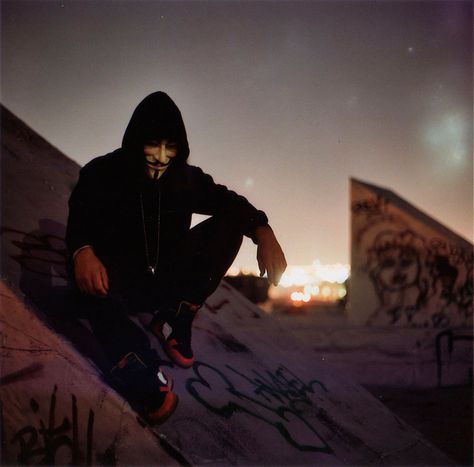
Bonfire night: Guy Fawkes, Europe's first 'indignant' citizen
Published on
The image of Guy Fawkes is everywhere at the moment, inspiring the worldwide anonymous and occupy movements. What would he have thought if he had known that over four hundred years after his death, thousands of people in Europe and beyond would be wearing masks of his face while protesting against today’s all-encompassing global political system?
Together with the worldwide protests, Guy Fawkes is garnering more and more publicity. Considering that until recently, Guy Fawkes was only widely known in Great Britain and that his memory has been subjected to mocking and macabre rituals by the ruling establishment and population for the last four centuries, this is quite a turn of events for the convicted 17th century terrorist.
 "Remember remember the 5th of November, Gunpowder treason and plot, I see no reason why gunpowder treason should ever be forgot..."
"Remember remember the 5th of November, Gunpowder treason and plot, I see no reason why gunpowder treason should ever be forgot..."
Anyone who grew up in Britain knows this poem; we were all taught it at school so that we remember the reasons why we celebrate Bonfire Night. For those who aren’t familiar with the tradition, Guy Fawkes was a catholic (at a time when it was illegal to be catholic), who plotted to blow up the parliament in London, in order to bring down the protestant monarchy. However, he and his friends were caught on 5 November 1605. After they were subjected to horrific torture, King James I ordered their execution. Subsequently their body parts were sent to different towns and hung in public places as a warning to the rest of the population. Ever since the day the catholic rebels were arrested, the population has annually celebrated the king’s narrow escape from assassination. Originally this celebration was obediently carried out based on the king’s orders (and probably also in view of the various body parts hanging about the country) but even after this ceased to be the case, the parties continued. Bonfire night (also known as Guy Fawkes night) has been celebrated in towns and cities across Britain every 5 November since 1605.
Bonfire nights are about fun, with most people taking part either at public events or private parties with baked potatoes on the menu. Nowadays they involve processions, firework displays and effigies of Guy Fawkes (known imaginatively as guys) being burned on bonfires. Although in recent decades the effigies burned have more commonly been of other public figures such as the pope or former British prime minister Margaret Thatcher (who was deeply unpopular with much of the population), the fact remains that the British continue to follow a tradition imposed on them in the name of the ruling powers. With the real message behind the tradition a warning not to rattle the establishment (or try to blow up parliament), at first glance it seems bizarre that the annual event is so popular. Then again, it can be seen as symbolic of the general political apathy in much of the developed world. Until now that is. Guy Fawkes has been resurrected and is inspiring the current anti-establishment protest movements worldwide.
 Even if the demands of the occupy and 'indignant' protestors are varied, the targets of the demonstrators are clearly the global financial institutions. So where does Guy Fawkes fit in to the ideal of the current movements? After all, wasn’t he a fundamental religious terrorist? Yes, probably. However, he was also fighting for his cause against a dominant and repressive regime, a cause which had a lot of meaning in his day and age. Guy Fawkes may have lost his own battle. Nevertheless, the 2006 film V for Vendetta which probably led to the recent popularisation of his image and consequent resurrection allows us to imagine how things could have been if he hadn’t got caught or if the people hadn’t afterwards obediently followed the king’s orders.
Even if the demands of the occupy and 'indignant' protestors are varied, the targets of the demonstrators are clearly the global financial institutions. So where does Guy Fawkes fit in to the ideal of the current movements? After all, wasn’t he a fundamental religious terrorist? Yes, probably. However, he was also fighting for his cause against a dominant and repressive regime, a cause which had a lot of meaning in his day and age. Guy Fawkes may have lost his own battle. Nevertheless, the 2006 film V for Vendetta which probably led to the recent popularisation of his image and consequent resurrection allows us to imagine how things could have been if he hadn’t got caught or if the people hadn’t afterwards obediently followed the king’s orders.
Maybe this year we’ll remember 5 November in a different light. Maybe it won’t just be the British who remember, but also the Greeks, Spanish, Germans, Egyptians, US Americans and many more around the world. With protestors camped out at St. Paul’s Cathedral in the city of London, this year’s bonfire night could take on a whole new meaning.



